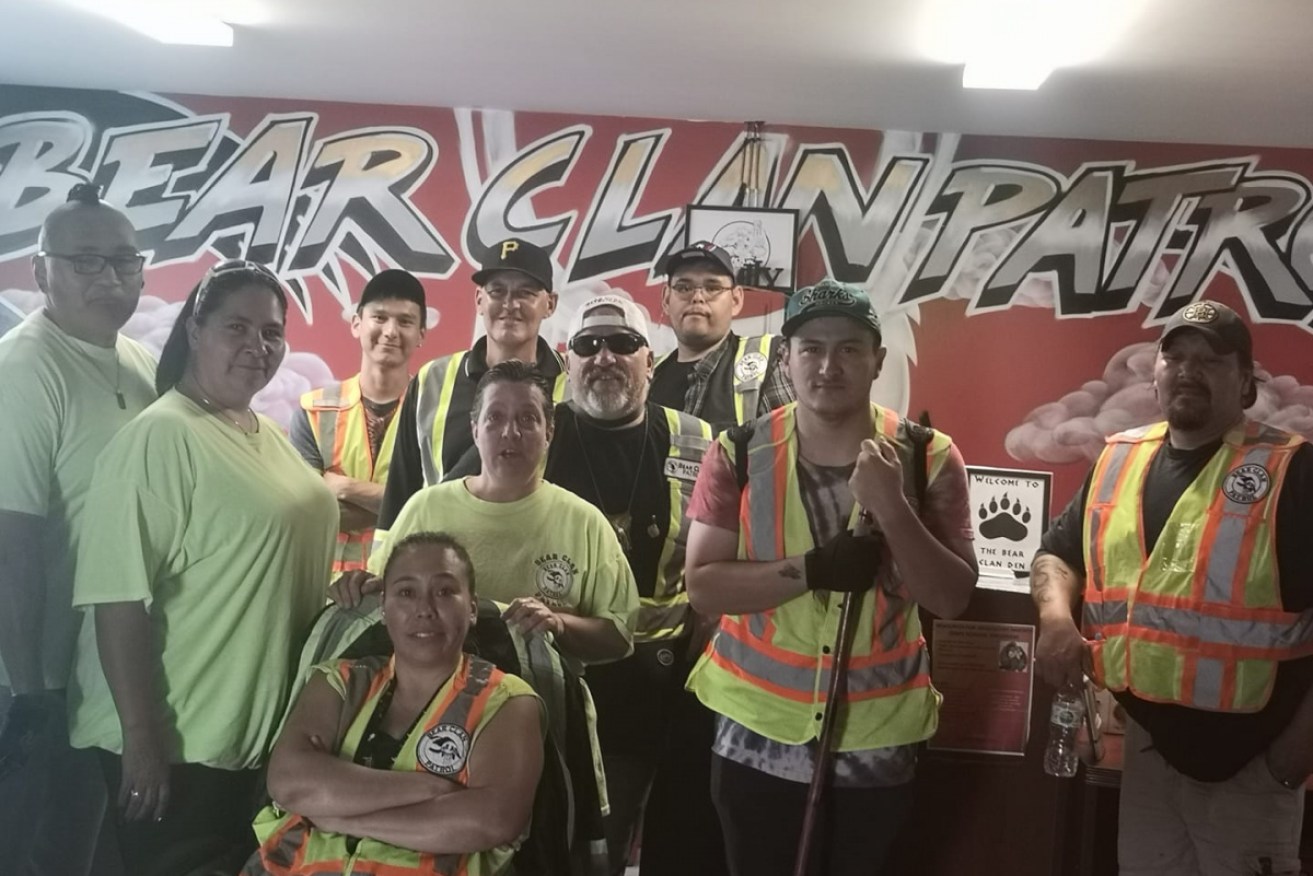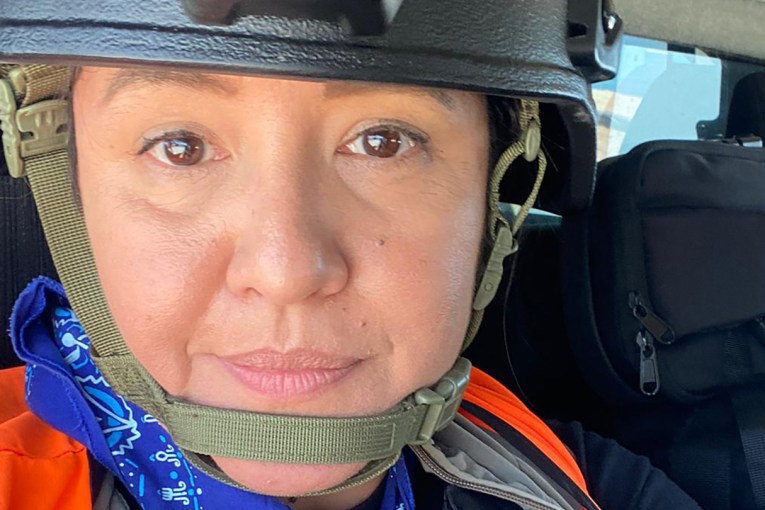Inside the Bear Clan Patrol that managed the first reported sighting of missing Canadian fugitives


The Bear Clan Patrol was established in 1992 to keep Indigenous people safe. Photo: Facebook
An Indigenous-led neighbourhood watch group is in the spotlight after claiming to have spotted two teenage fugitives suspected of murdering Australian tourist Lucas Fowler, his US girlfriend and a botanist.
The reported sighting appeared to be a major breakthrough in the two-week manhunt for long-time friends Kam McLeod, 19, and Bryer Schmegelsky, 18, earning the Bear Clan Patrol thousands of dollars in public donations.

Missing teenagers Kam McLeod, 19, and Bryer Schmegelsky, 18, are suspects in the murder of an Australian backpacker and his girlfriend in Canada.
A GoFundMe campaign was created some nine months ago to help the 375-member clan safeguard remote Aboriginal communities that have no local police forces.
The patrol has so far raked in more than $35,000, with the news of the sighting igniting a social media frenzy. Their donations reportedly spiked by $4000 after the development on Sunday.

Lucas Fowler and partner Chynna Deese. Photo: NSW Police
Authorities – with the help of military resources – have been running a massive search for the teen suspects, to help bring some justice to the families of Lucas Fowler, Chynna Deese and Leonard Dyck.
Pressure and criticism began to mount on Tuesday after it was revealed that on July 23 police had actually stopped the pair of fugitives in a routine alcohol check – but they did not raise suspicions so were let go.
The Royal Canadian Mounted Police Manitoba has since responded that the officers were not from their service but a Split Lake First Nations safety officer.
A report by the clan group that two teens matching the suspects’ identities had been seen foraging for food in a garbage dump gave anxious Canadians hope the search for the killers would soon end.
But after a “thorough and exhaustive search” around the isolated town of York Landing, the Royal Canadian Mounted Police conceded it could not substantiate the claims and have pulled police resources from the area.
Police have also completed door-to-door canvassing of about 500 homes in Gillam and Fox Lake Cree Nation and continue to believe the pair have not left the Gillam area.
This has not stopped the public from wanting to know more about the Canada-based volunteer safety group.
“Who are the Bear Clan?” asked one Twitter user. “They sound so badass.”
Danielle McMaster is a search volunteer with Bear Clan Patrol in York Landing – confirms one of the men spotted by her group of volunteers was wearing a camouflage shirt, like teen suspect Bryer Schmegelsky.@9NewsAUS pic.twitter.com/I3SM5RGcj7
— Alexis Daish (@LexiDaish) July 30, 2019
The Clan, which represents 62 First Nations, aims to fill a policing vacuum by working to keep the peace and providing community members with a sense of safety and security.
But it has no legal authority or police power.
“The Bear Clan does not arrest people, it does not go into people’s homes unless invited, or otherwise take action that is more appropriately the responsibility of the police,” the Clan said on its Facebook page.
In the case of the teen fugitives, Bear Clan founder James Favel said if the suspects are found, its role will be to alert “the community to their presence and taking the appropriate steps to make sure everyone is safe”.

The Clan volunteer their time to protect their community. Photo: Facebook
Following the possible sighting of the two murder suspects, Mr Favel advised locals to remain in doors.
“Keep your doors locked and your kids close,” he told CBC News.
The organisation formed in 1992 but after several years, it struggled to attract volunteers and was forced into a hiatus.
Volunteers generally operate out of an Indigenous youth centre called Ndinawe Youth Drop In, which is located in Winnipeg, capital of Canadian province Manitoba.
It re-emerged in 2015 in a strong-willed attempt to make the streets of Winnipeg safer after the murder of 15-year-old First Nations girl Tina Fontaine.
Her blanket-wrapped body was discovered at the bottom of Manitoba’s Red River in 2014. She had originally left Sagkeeng to visit her estranged mother located some 120 kilometres away in Winnipeg.
Since her tragic death, the Clan has established volunteer groups in 35 other Canadian communities, with its membership growing to 1500 people.
In 2017, Winnipeg recorded the largest Indigenous population of any major city in Canada, according to census data.
It’s home to the Aboriginal Peoples Television Network – the world’s first national aboriginal broadcaster.








